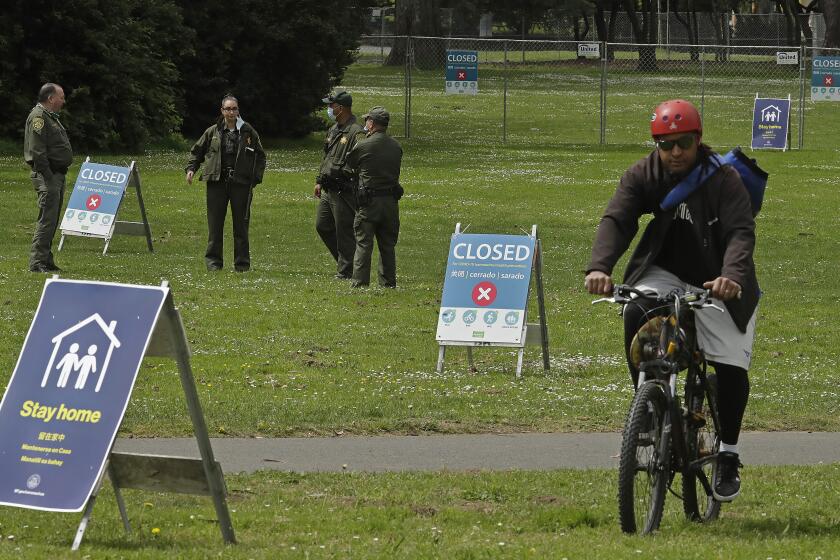Pruning pot spots
When Californians voted to legitimize medical marijuana in 1996, they probably didn’t realize they were stepping into a legal and regulatory minefield. Today, there are hundreds of medical marijuana collectives and cooperatives in Los Angeles, which are caught in quasi-legal limbo -- barely regulated, largely untaxed, sanctioned by the state but subject to raids by federal drug agents. They’re about a dozen years late, but some members of the City Council are finally aiming to do something about all that.
Councilman Dennis Zine has asked the city attorney’s office to draft an ordinance regulating the design and operation of the L.A. establishments. Councilwoman Janice Hahn says the logical next step would be to impose a business tax on them, similar to that approved by Oakland voters last week. Both proposals have merit and could finally bring order to the industry.
The last time Los Angeles sought to regulate marijuana collectives was 2007. Recognizing that dispensaries were popping up across the city like -- pardon the expression -- weeds, the council imposed a moratorium on new ones until regulations were put in place. But operators could appeal to the City Council for a hardship exemption, and the council failed to act on those applications; although no exemptions were granted, the dispensaries were allowed to open. The result: There were 186 dispensaries registered with the city in 2007, and although the exact number operating today is unknown, police say there may be as many as 600. In some parts of the city they’re more ubiquitous than Starbucks.
The council eliminated the moratorium’s hardship exemption this month, and Zine’s proposed ordinance would shut down dispensaries that opened during the moratorium. It would also restrict their location -- they couldn’t operate within 1,000 feet of a school, park, library or other dispensary, for example -- and impose requirements such as posting regulations and permits, installing security cameras and maintaining a lobby between the entrance and the sales floor. The moratorium would sunset with passage of the ordinance, and pre-moratorium dispensaries in violation of the location restrictions would be able to apply for a hardship exemption and move to an approved location.
The issue of taxation is trickier and can’t even be addressed until regulations such as those proposed by Zine are in effect. The state of California charges sales tax on medical marijuana, but the city does not impose a business tax on dispensaries because they are supposed to operate as nonprofits. As they did in Oakland, many operators here are lobbying for a business tax, believing that it would confer legitimacy in the eyes of the public.
We believe that marijuana has legitimate medical purposes, but we recognize that it’s also an intoxicant best kept out of the hands of anyone simply looking for a high. If the city doesn’t regulate its dispensaries, there’s a chance the Drug Enforcement Administration will, with results many Californians would rather avoid.
More to Read
Start your day right
Sign up for Essential California for news, features and recommendations from the L.A. Times and beyond in your inbox six days a week.
You may occasionally receive promotional content from the Los Angeles Times.






